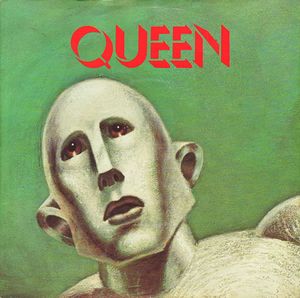
"We Are the Champions" is a song by the British rock band Queen, released from the band's sixth album News of the World (1977). Written by lead singer Freddie Mercury, it remains among rock's most recognisable anthems. The song was a worldwide success, reaching number two in the UK, number four on the Billboard Hot 100 in the US, number three in Canada, and the top ten in many other countries. In 2009 it was inducted into the Grammy Hall of Fame and was voted the world's favourite song in a 2005 Sony Ericsson world music poll.

Christopher Cross is an American singer-songwriter and guitarist from San Antonio, Texas. He won five Grammy Awards for his eponymous debut album released in 1979. The singles "Sailing" (1980), and "Arthur's Theme " peaked at number one on the U.S. Billboard Hot 100. "Sailing" earned three Grammys in 1980, while "Arthur's Theme" won the Oscar for Best Original Song in 1980.
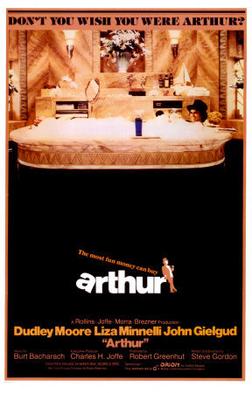
Arthur is a 1981 American romantic comedy film written and directed by Steve Gordon. It stars Dudley Moore as Arthur Bach, a drunken New York City millionaire who is on the brink of an arranged marriage to a wealthy heiress but ends up falling for a common working-class young woman from Queens. It was the sole film directed by Gordon, who died in 1982 of a heart attack at age 44.

Burt Freeman Bacharach was an American composer, songwriter, record producer, and pianist who is widely regarded as one of the most important and influential figures of 20th-century popular music. Starting in the 1950s, he composed hundreds of pop songs, many in collaboration with lyricist Hal David. Bacharach's music is characterized by unusual chord progressions and time signature changes, influenced by his background in jazz, and uncommon selections of instruments for small orchestras. He arranged, conducted, and produced much of his recorded output.

Carole Bayer Sager is an American lyricist, singer, songwriter, and painter.
"That's What Friends Are For" is a song written by Burt Bacharach and Carole Bayer Sager.

"I Say a Little Prayer" is a song written by Burt Bacharach and Hal David for Dionne Warwick, originally peaking at number four on the U.S. Billboard Hot 100 pop singles chart in December 1967. On the R&B Singles chart it peaked at number eight.

"Flash" is a song by British rock band Queen. Written by guitarist Brian May, "Flash" is the theme song of the 1980 film Flash Gordon.

"Nobody Does It Better" is a power ballad and the theme song for the James Bond film The Spy Who Loved Me (1977). Composed by Marvin Hamlisch with lyrics by Carole Bayer Sager, the song was produced by Richard Perry and performed by Carly Simon. It was the first Bond theme song to be titled differently from the name of the film since Dr. No (1962), although the phrase "the spy who loved me" is included in the lyrics. The song was released as a single from the film's soundtrack album, and became a major worldwide hit.

"(They Long to Be) Close to You" is a song written by Burt Bacharach and Hal David with sections of the early version written by Cathy Steeves. The best-known version is that recorded by American duo The Carpenters for their second studio album Close to You (1970) and produced by Jack Daugherty. Released on May 14, 1970, the single topped both the US Billboard Hot 100 and Adult Contemporary charts. It also reached the top of the Canadian and Australian charts and peaked at number six on the charts of both the UK and Ireland. The record was certified gold by the Recording Industry Association of America (RIAA) in August 1970.

"I Can't Go for That (No Can Do)" is a song by American duo Hall & Oates. Written by Daryl Hall, John Oates and Sara Allen, the song was released as the second single from their tenth studio album, Private Eyes (1981). The song became the fourth number one hit single of their career on the Billboard Hot 100. It features Charles DeChant on saxophone.
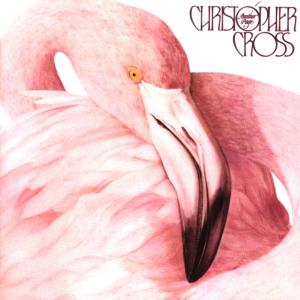
Another Page is Christopher Cross's second studio album, recorded in 1982 and released in early 1983. It was not as commercially successful as its predecessor. "Think of Laura", taken from the album as Cross's third single, reached #9 on the Billboard Hot 100 in 1984. It was Cross' final single to reach the Top 10. The first single, "All Right", reached #12 on the chart a year before. As a single, "No Time For Talk" peaked at #33. "Arthur's Theme " appeared as a bonus track on the cassette and later CD releases of the album.

"I'll Never Fall in Love Again" is a popular song by composer Burt Bacharach and lyricist Hal David that was written for the 1968 musical Promises, Promises. Several recordings of the song were released in 1969; the most popular versions were by Dionne Warwick, who took it to number 6 on Billboard magazine's Hot 100 and spent three weeks topping the magazine's list of the most popular Easy Listening songs, and Bobbie Gentry, who topped the UK chart with her recording and also peaked at number 1 in Australia and Ireland, number 3 in South Africa and number 5 in Norway.

"Waiting for a Girl Like You" is a 1981 power ballad by the British-American rock band Foreigner released as the second single from the album 4 (1981) and was co-written by Lou Gramm and Mick Jones. The opening motif was written by Ian McDonald and the distinctive synthesizer theme was performed by the then-little-known Thomas Dolby.

"This Guy's in Love with You" is a hit song written by Burt Bacharach and Hal David and released by Herb Alpert in May, 1968. Although known primarily for his trumpet playing as the leader of the Tijuana Brass, Alpert sang lead vocals on this solo recording, which was arranged by Bacharach. An earlier recording of the song by British singer Danny Williams with different lyrics, titled "That Guy's in Love", appeared on Williams' 1968 self-titled album.

Peter Allen was an Australian singer-songwriter, musician, and entertainer, known for his flamboyant stage persona, energetic performances, and lavish costumes. Allen's songs were made popular by many recording artists, including Elkie Brooks, Melissa Manchester and Olivia Newton-John, including Newton-John's first chart-topping hit "I Honestly Love You", and the chart-topping and Academy Award-winning "Arthur's Theme " by Christopher Cross. In addition to recording many albums, Allen enjoyed a cabaret and concert career, including appearances at the Radio City Music Hall riding a camel. His patriotic song "I Still Call Australia Home", has been used extensively in advertising campaigns, and was added to the National Film and Sound Archive's Sounds of Australia registry in 2013.
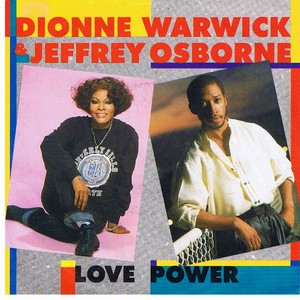
"Love Power" is a song by American singers Dionne Warwick and Jeffrey Osborne. It was written and produced by Burt Bacharach and Carole Bayer Sager for Warwick's studio album, Reservations for Two (1987), and features an appearance by Kenny G playing the alto sax solo. Released as its lead single, it became Warwick's sixth number-one hit on the US Billboard Adult Contemporary chart. The track also reached number 12 on the Billboard Hot 100. "Love Power" marked her final appearance in the top 40 on the latter chart. For Osborne, "Love Power" was his only number-one Adult Contemporary hit, and it would be his last appearance in the Billboard Hot 100 top 40 as well, since "She's On the Left," his only number-one R&B hit, would only reach number 48 on that same chart the following year.

"Don't Cry Out Loud" is a song written in 1976 by Peter Allen with lyricist Carole Bayer Sager that is best known as a hit single for Melissa Manchester in the US and for Elkie Brooks in the UK.
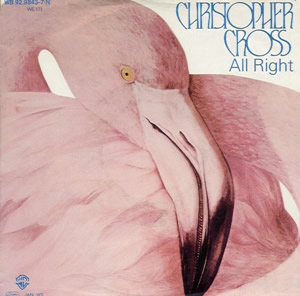
"All Right" is a song written and recorded by American singer-songwriter Christopher Cross. It was released in January 1983 as the lead single from the album, Another Page. On the heels of his Grammy winning first album, and following his #1 hits "Sailing" and "Arthur's Theme ", expectations were strong enough for it to debut on the Billboard Hot 100 at #29. It was the fifth-highest debuting single of the 1980s, ranking behind Michael Jackson's "Thriller", USA for Africa's "We Are the World", Paul McCartney's and Michael Jackson's "Say Say Say", and Men at Work's "Overkill". The single, which featured former Doobie Brother Michael McDonald on background vocals, peaked at #12.

"Making Love" is a 1982 song written by Burt Bacharach, Bruce Roberts, and Carole Bayer Sager to serve as the theme song for the film of the same name in which, as recorded by Roberta Flack with Bacharach/ Bayer Sager producing, it played under the closing credits: a Top 20 hit single for Flack, "Making Love" was included on the singer's 1982 album release I'm the One.



















